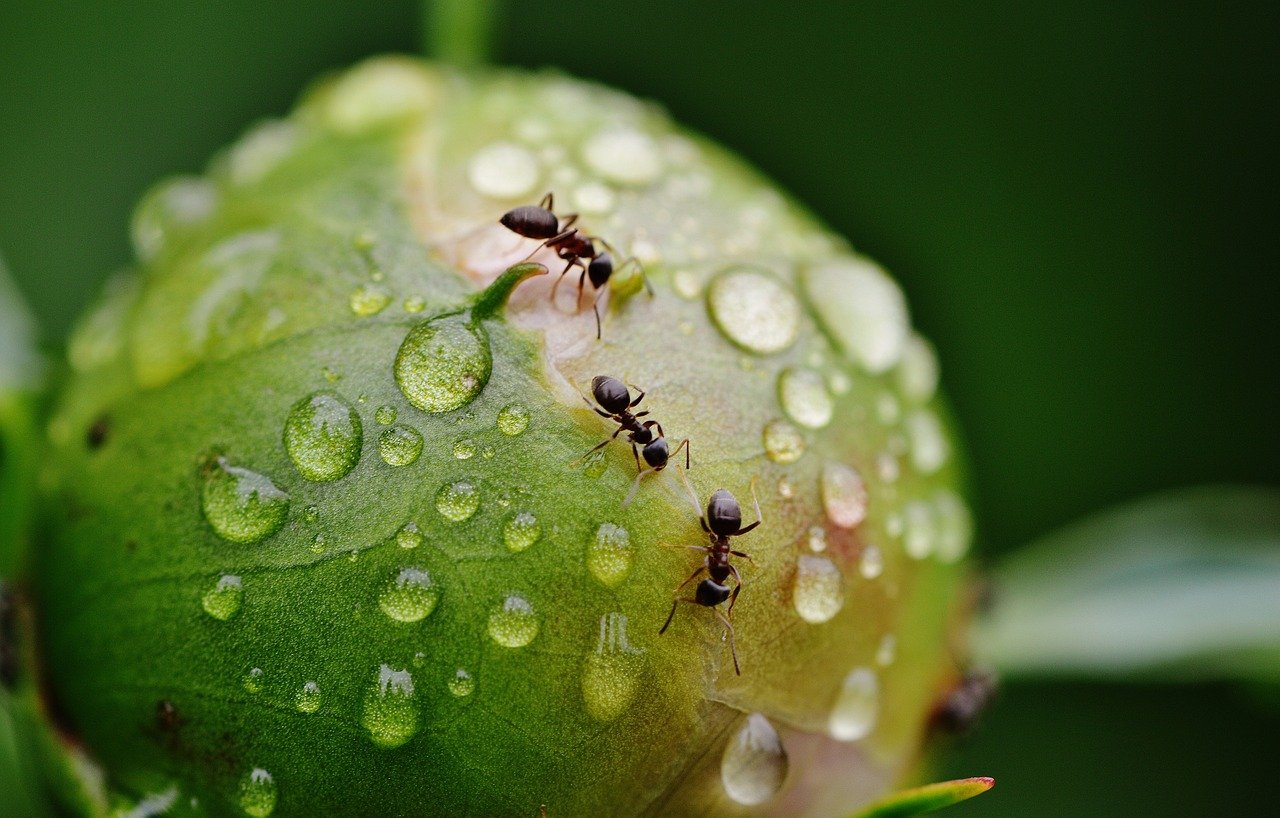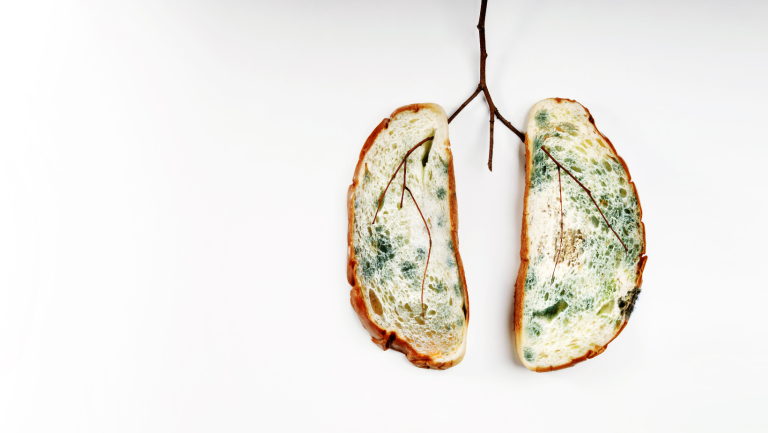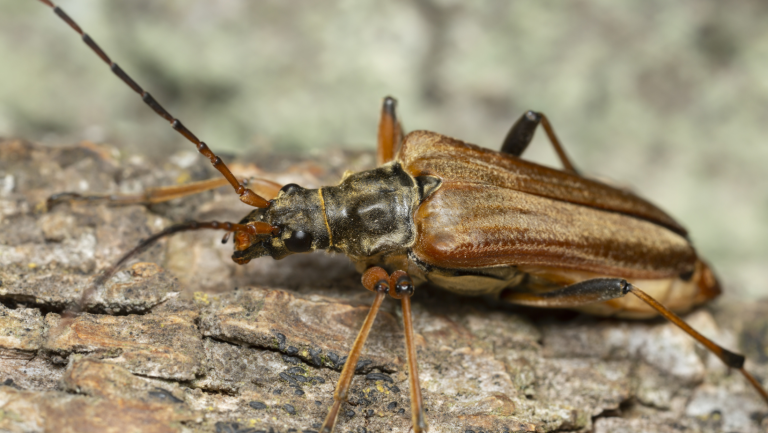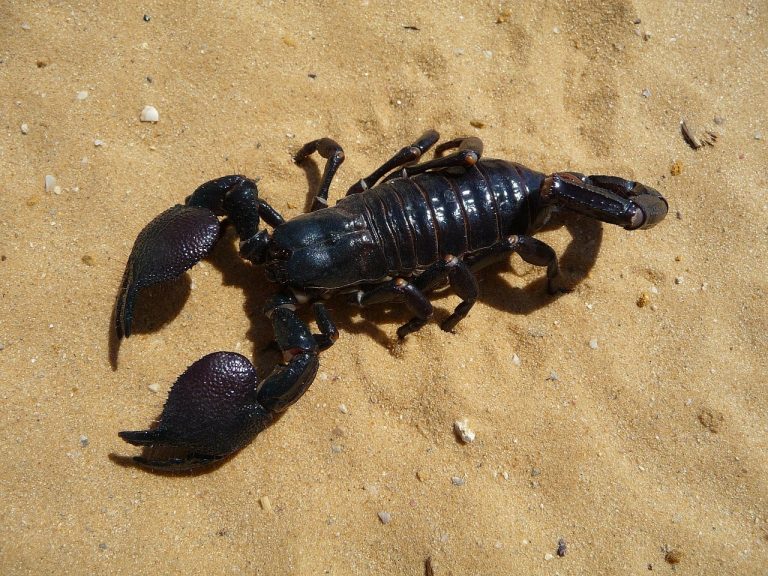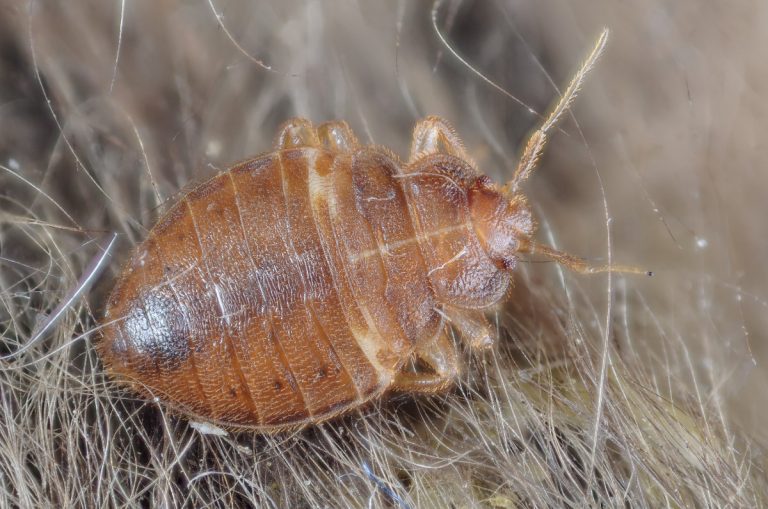How to Get Rid of Ants? Natural, Herbal, and Chemical Treatment
There could not be differing opinions than that the ants are the most common invaders in our houses. You can see them anywhere – this species is active all the time as you will not see an ant sitting in one place.
Ants are eusocial insects of the family Formicidae, and belong to the order Hymenoptera. Ants have an early origin, say, from the latest ‘Early Cretaceous’ and early ‘Late Cretaceous’ period. A total of 22,000 species have been classified, though, only 12,500 species are known to us.
Ant is a socialite insect and always lives in colonies. Ants’ socialites have the division of labor, communication between individuals, and an ability to solve complex problems. These qualities are comparable with human beings and are often a subject of research.
Some common species of ants are listed below –
While all species of ants don’t damage crops and invade buildings, some like ‘red imported fire ant’ does, and are hence considered invasive species.
Some common species of ants are listed below :
- Carpenter Ants (over 1,000 species) – They don’t eat wood but excavate it to build nest.
- Pharaoh Ants (200 queens) – Nests inside warm, humid areas near food and water sources.
- Crazy Ants (13,000 species) – Nests in plants, soil, heavy vegetation, and garbage, and indoors they nest under carpets, wall voids.
- Odorous House Ants – Nests near moist sources such as hot water pipes and sinks.
- Fire Ants (over 200 species) – Known to survive in extreme conditions and have a venom-injecting sting.
- Pavement Ants (13,000 species) – Nests inside walls, slabs, insulation, and under floors.
How to Get Rid of Indoor Ants
If one has to avoid the ants, he has to know the proper way to do so. There are many remedies that allow you to keep ants away. While the most heard and seen is to keep little amount of bleaching powder laid at the entry points, there are many more. We have a natural, chemical, and herbal remedies to consider in need to keep ants away from our house or surroundings.
Natural Home Remedies to Get Rid of Indoor Ants
Here, we will discuss some of the natural remedies to begin with.
- Diatomaceous Earth – It is a fine silica powder, and provides a natural abrasive barrier to crawling insects. The small crystals of DE are capable enough to kill insects including ants. You can prevent the ant movement in its mounds itself.
Cover them with DE, stir with a long stick and put some more DE. - Baking Soda – Dust the ant mound with baking soda to destroy the colony and then, spray pure white vinegar.
- Peels of Citrus Fruits – Do not throw away the dry peels of orange, lemons, or any citrus fruit. Ants don’t like citrus’ smell so, if you grind the peels and spread them near the probable entry points, ants will keep away.
- Used Coffee Grounds – Spread the used coffee grounds along with the entry points of your house to create a barrier for the ants’ entry. The ants won’t cross the coffee ground spread.
- Borax-Free Bait – Mix equal parts of baking soda and powdered sugar. Keep it as bait in the open lid. The ants will take it to their nest and ingest it.
- Chalk Line – You can simply draw a chalk line at the entry point of ants and you won’t see any ants entering from there.
However, it’s a mystery, as to why the ants avoid chalk since it does not produce any deterrent smell. - Block the Entries – Seal each entry point of your house tightly with weather stripping to prevent ants from entering your home.
- Vinegar and Lemon – Mix an equal amount of vinegar and lemon juice in a spray bottle and shake well. Spray around the windows and door frame to prevent the ants’ entry.
- Borax Powder – Combine an equal part of powdered borax and powdered sugar. Put this mixture in an open lid and keep it as bait at the ants’ entry. Ants will get eradicated when they carry it to their nest and eat.
- Peppermint – To prevent ants in the bathroom and kitchen, add several drops of peppermint essential oil on cotton and place them on countertops, cabinets, or near the garbage bin.
The ants hate the mint’s smell and will not enter those areas. - Cinnamon – You can keep the ants away from your home by keeping the cinnamon sticks at your window slits. To enhance the fragrance, pour a little bit of cinnamon essential oil on cinnamon sticks.
- Avoid Wood Usage – The wood smell will attract the ants. If you can arrange minimal wood furniture or cupboards, it will be helpful to prevent ants. Also, do not store firewood inside the house.
- Lemon – Lemon-scented cleaner sprayed on sinks, countertops, and tabletops will keep a check on ants. Also, remove waste food particles, residues whose smell can attract the ants.
- Dish Wash Soap – Mix little dish wash soap with water and spray along the trail of ants. You need to ensure the area is dry after usage.
- White Vinegar – Spray at the entry points in the house surroundings. It is not harmful as it is non-toxic.
- Salt – Salt is an ant deterrent. You can leave some salt lying near an ant nest and block their way.
- Red Chilli Powder – The spices with a strong odor such as red chili powder are avoided by the ants. Additionally, it acts as a toxin and ants lose their sense of smell.
How to Get Rid of Ants With Pets in the House
All the above methods are not essentially helpful if you have pets at your home. It is quite possible what you have done for ants may harm your pets. Here, you must not use material like borax powder, which could harm your pet.
You have the liberty to use only the things which won’t have any effect on your pets even if they smell or eat it. We will see some methods which work very well while perfectly safe for your pets.
- Cornmeal – Used mostly in Eastern Europe and convertible into a very delicious dish, cornmeal can be used to prevent and eradicate ants as when the ants eat it in small amount, it expands in their guts making them bloat and substantially die.
- Diatomaceous Earth – Diatomaceous earth kills most of the insects like bed bugs, cockroaches, and ants. Since diatomaceous earth is a natural ingredient containing fossilized remains of diatoms, aquatic microorganisms, it won’t hurt your pets.
We recommend using the food-grade version of diatomaceous earth which is used in nutritional food. One thing to note is that DE can be helpful only for minor infestation and not the large ones. - Dish Soap Spray – You can effectively use dish soap in combination with the water for stopping the ants. This is the most available material at all the time. The effectiveness of the mixture will be attended if you add 10 to 20 drops of dish wash soap and make it to 3/4th of the spray bottle with water.
This is not going to harm your pets, for sure. However, ensure that you are using the natural dish wash and not the ones laden with chemicals. - Terro Ant Baits – Terro is a liquid-based decent, non-toxic solution used to kill spiders, ants, pests, and insects.
You need to place these liquid baits at the entry points of insects. When they walk over this bait, they get poisoned. This liquid bait is slow effecting but you can be assured to eliminate ants from your house. - Boiling Water – With nothing to use, you can adopt this easiest option to eradicate the ants. You need to pour boiling water straight into the nest of the ants and the effect of it will kill the ants instantaneously.
Ensure you do not spatter it to harm yourself or your pets while doing so. - Cayenne Pepper – Sprinkle cayenne pepper around the perimeter of your house. Ants never cross the cayenne pepper and your pets will not get harmed by cayenne pepper.
- Vinegar – Mix one part of water with three parts of vinegar and spray it at the entry area. This will work as ants repellent because of its acidity and since pets don’t like vinegar’s taste, they are not going to get harmed.
- Flour – Pour flour at the ants trail. It will kill the existing ants and will prevent further seeping in of ants. Pets may smell flour but they won’t eat it and even if they do, it is harmless to them.
While these methods are effective for smaller infestations, you must take the help of professionals if you do have a large infestation at home.
Chemical Treatment to Get Rid of Indoor Ants
When there is one ant, there are thousands of more around. While we struggle to eliminate the ant infestation, there are some methods that need to be handled with care as they are chemical-based methods.
While you are using these methods, you must ensure that there are no pets in the home. Also, take note to keep them out of reach of your children.
- Ant-Baits – There are two types of baits available, one is protein-based and another is carbohydrate-based. If you desire to get maximum effect, you need to use a combination of both for the treatment.
You need to keep the bait in the area of ant activity. Keep the bait in the plate provided with the kit and place it near ant activity or next to ant trail. Places recommended are the following – - Kitchen cabinets and counter tops
- Near sinks or drain
- Around pipes, cords, and cables
- Behind or under bathroom fixtures.
- Ant –Sprays – Use non-repellent ant spray to supplement baits. This is because ants may already have a food source and won’t bother about bait. The non-repellent ant spray is not an instant result giving solution but the eradication is for once and all.
Rest assured that you will not get any traces of ant activity furthermore. - Pesticides – There are some effective pesticides that can be used to kill both indoor and outdoor ants. These can contain one of the following ingredients – Acephate, Nifenthrin, Carbaryl, Cyfluthrin, and Permethrin.
- Acephate is used for liquid pesticides and spray.
- Bifenthrin and Cyfluthrin are the active ingredients in solid pesticides.
- Carbaryl and Permethrin are used in both liquid and solid pesticides.
- Hydramethylnon – It is used in baits and gels, liquids and granules and can be used against argentine ants, carpenter ants, and fire ants. It has low acute toxicity to humans and is not extensively absorbed through the skin.
- Neonicotinoids – Imidacloprid, clothianidin, acetamiprid, and thiamethoxam are Neonicotinoid pesticides used as gels or liquids. It has moderate acute toxicity to humans and is absorbed through the skin to some extent.
- Avermectin – Avermectin-based baits are used to treat fire ants, argentine ants, and carpenter ants. It has high acute toxicity to humans but is used in low-concentrations in baits.
- Fipronil – Fipronil is used to control fire ants, argentine ants, and carpenter ants along with others. It is formulated as gels, liquids, granules, and impregnated materials.
Fipronil is moderately acutely toxic by ingestion, but not absorbed substantially through the skin. - Metaflumizone – It is used to control fire ants and is packed as granules and pellets. It has low acute toxicity.
- Indoxacarb – Indoxacarb baits are used to control fire ants and are packed in granular form. It has low acute toxicity.
- Boric Acid or other Borates – Boric acid powder is a commonly used insecticide used with powdered sugar to attract the ants. As food, they carry it to their nests and after ingesting, get killed.
- Insect Growth Regulator – There are some insect growth inhibitors that prevent the growth of ants.
Methoprene and pyriproxyfen are insect growth regulators that stop the development of insects from one stage to another. They can be primarily used to control the fire ants.
- Ant Liquid – Ant liquid can be sprayed at the entrance point or directly on the ant hill. It is filled will ant poison and the ant gets killed once it touches the liquid.
- Ant Granules – Easy to use and recommended to keep at the external area of the entrance. Ants die within a day or two once it consumes granules.
- Boiling Water – Use the boiling water in the areas where you see ants’activity. This kills ants instantaneously. However, this is to be done frequently as it does not have a strong odor or larger control area-wise.
- Household Cleaners – You can use the spray of household cleaner by diluting to appropriate amounts that would give effective results.
However, this treatment is a repetitive one.
While using the chemical treatment to control or eliminate ants, you must take the help of professionals as some of the above chemicals’ usage is prohibited for common people. There is a restriction on who can use them.
So, be sure enough to hire pest control services.
How to Get Rid of Outdoor Ants
Though the ants are small in size, they do create chaos when it comes to your garden lawn or yard. If you neglect their start of the building of nest just because they haven’t harmed you, you will be in for a rude shock. Where giants like dinosaurs got extinct and many types of tigers are decreasing, the ants remained untouched. This means they seriously possess some survival power.
Therefore, do not take ants activities casually and start acting on them as soon as possible.
Natural Remedies to Get Rid of Outdoor Ants
- Cucumber Peels – Whenever you use cucumber in your meal, do not throw away the peels. Instead of that, place them around your garden. Cucumbers that are bitter in taste are best. The ants are averse to them.
- Cornmeal Deterrent – To keep the ants from crawling up the pole in your outdoor, sprinkle cornmeal around the pole or post. You need to reapply to assure the prevention of ant activity.
- Food-Grade Diatomaceous Earth – Place the diatomaceous earth outside. It is a natural ant repellent, non-toxic, and disrupts ants’ trails.
- Chalk-Line – You can draw a chalk-line on the outer parts of the window and in-between the steps of your entrance door. Use it around the lamp-posts too.
- Borax – Borax mixed with powdered sugar or syrup attracts the ants and will work as bait. Ants will be happy to ingest it but will subsequently die.
- Cayenne Pepper – To drive away the ants, cayenne pepper is the best solution as the strong odor disrupts the signals of ants, so, they are not able to make their way to the nest.
- Dish Wash Soap – The dish wash solution suffocates the ants and ruptures their cells. They get dehydrated and die.
- Molasses – Molasses is the best option to eliminate the ants organically and safely. It masks the insecticidal properties of other ingredients.
- Fresh Garlic – This little herb is a natural pest removal. Garlic helps to remove all the bugs from your home effectively.
- Alcohol – Use 1 teaspoon of rubbing alcohol and 1 teaspoon of dish wash soap and mix with water in a spray bottle. Spraying the solution at trails will keep the ants away.
- Baby Powder – Baby powder is an ants’ deterrent, so, you can sprinkle it in your home as well as in the garden as a barrier.
- Salt – Salt will make the ants dehydrate by drying out their tiny, sensitive bodies. The results of using the salt are long-lasting.
- Bay Leaves – Ants do not like the fragrance of bay leaves. Keep some bay leaves at the windows silt or porch area to drive away ants.
- Red Chilli Powder – The red chilli powder acts as a toxin and chokes and suffocates the ants. They lose the sense of their surroundings and die.
- Cream of Wheat – When the ants consume the cream of wheat, it expands and shocks their fragile guts and the ability to digest gets disrupted. It causes the stomach to expand and blast, resulting in their death.
- Peanut Butter and Borax – You can eliminate the ants by keeping a mixture of peanut butter and borax in combination with powdered sugar, as bait for the ants.
- Flour – Ants don’t like any powdered dry material. Therefore, you can sprinkle flour a little to keep the ants away.
- Aspartame – Mistaking it for real sugar, the ants will eat it and the neurotoxin in aspartame will cause the ants to lose their senses.
Chemical Treatment to Get Rid of Outdoor Ants
While you can use some pesticides indoor with professional help, you cannot use aerosol sprays or foggers. However, you can use them outdoors as the particles floating in the air are likely to get away with the wind or may lay unaffected to us.
Use of aerosols sprays or foggers is not recommended for indoors because of its pesticide-containing particles and also the possibility of explosion risk in homes with gas appliances. Outdoor sprays can drift away and but pose a risk to non-target wildlife and other beneficial insects.
- Botanicals – Several naturally occurring substances including limonene, phenylethyl propionate, thyme oil, capsicum oleoresin, pyrethrins, cinnamaldehyde, neem oil, clove oil, linalool, and allyl isothiocyanate (a garlic extract), are available as aerosol sprays.
Care to be taken that there should not be inhalation of the spray. - Pyrethroids – Many pyrethroid pesticides are used in aerosol sprays or foggers. The pyrethroids are allethrin, bifenthrin, cyfluthrin, cyhalothrin, cypermethrin, deltamethrin, esfenvalerate, imiprothrin, tetramethrin, tralomethrin, and phenothrin.
Many products containing synergist such as piperonyl butoxide increases the toxicity of active ingredient. The possibility of exposure to these chemicals is very high because they are packed as aerosols. Pyrethroids may cause an asthma attack or set off an allergic reaction to the sensitive individual. - Organophosphates and Carbamates – The hazardous products containing chlorpyrifos were forced to remove from the market back in 2001-2002. The remaining chemicals in this group are neurotoxic at relatively low doses while several as propoxur, DDVP, and malathion are probable and possible carcinogens.
- Boiling Water – Use the boiling water directly on the ant nests. Disturb the nest and reapply the hot water to penetrate properly.
- White Vinegar – Pouring 1 tablespoon of white vinegar directly onto the nest will be effective. It is also safe as it is not harmful to your plants.
- Diatomaceous Earth – Use the powder mixed with powdered sugar and create a barrier around the nest. Also, place at different entry points.
- Alcohol – Alcohol in combination with dish wash soap and water can be sprayed around or on the nests to prevent the ants.
- Coffee Powder – Pour some coffee around the trees and surrounding area. The ants hate the smell and will not enter there.
- Boric Acid – Boric acid in powdered form can be sprinkled around the outer part of the house and in the garden.
- Fipronil – This local pesticide spray can be used to stop the ants but it is temporary and cannot eradicate the colony. Either you need to apply more or you need to do it frequently. It also has regulations of use.
- Indoxacarb – This comes as baits and can be used outdoor as it is granular and have low acute toxicity.
Aerosol Foggers – The foggers are effective but the pesticide particles can get blown away and therefore, are not advised to use individually.
Get Rid of Ants in Your Yard
While you can contain your house from the entry of ants with the help of natural or chemical treatment, it is quite impossible to stop the ants’ entry in your yard. This is because there will be multi-directional open entries and you cannot protect each one of them.
We will discuss some tips about keeping the ants away from the yard.
- Water leaks around the house should be fixed as along with food, ants hunt for water also.
- The water drainage must not open anywhere near your home and should take all water sufficiently away.
- Do not let excess moisture generate in your area. Procure dehumidifier if needed.
- The water-retaining pile of leaves, wood, or branches should be removed periodically to maintain the yard free of any nature-waste.
- Trees, bushes, and grass to be regularly trimmed to deny them to provide shady or moist areas where ants can shelter. Special attention must be given during the rainy season.
- Your outdoor trash bins must have tight lids to prevent the atmosphere from decomposed garbage.
- Any water-trapper must be avoided outdoors. The water should not get stagnated in the yard.
- Pest-waste must be cleaned regularly as it is one of the attractions to the ants and other pests.
- If you have plants or vegetables, ensure the ripe fruit or vegetables’ trash is removed timely. The smell will attract the ants and other pests quickly.
- Get rid of outdoor trash in an attempt to eliminate the development of decomposition or build-up of odor.
- Trim-off the branches which reach your terrace or balcony that can make an easy entry to ants.
How to Get Rid of Ants From the Trees
Though the ants are not much destructive at home or outside, they are irritating because of their slow effects of infestation or even damage to property. Inside or outside, ants will affect the material.
Ways to Get Rid of Ants From Trees
In the yard, ants can render your plants, trees, and other foliage useless. Slowly but surely, there will be a damaging impact. The more ants in number, the more the trees will get weaker quickly. If you find that the ants are forming colonies around your trees, you can adopt the following methods to eradicate them –
- Use of Petroleum Jelly – It is easily available, does not impact foliage or greenery, and works great in combination with other approaches.
You can use the jelly to block the ants away from their colony, keep it in the colony, or put in the trail of the ants. With the help of petroleum jelly, you can find out their colony for further treatment. - Sprinkle Pepper – Pepper is also easily available; you can use black or cayenne pepper, works solid for smaller infestation. Sprinkling pepper around your trees will help to reduce the population of ants around the trees as ants hate pepper smell.
Ensure that you are not using pepper around roses or orchids, which don’t like pepper. - Flood the colony with water – This is the simplest and easiest way of treatment. Though this is needed to be done repeatedly, it works. This destroys their underground burrows and forces the ants to leave the place. A bit lengthy process to be done patiently.
- Peppermint Oil – It is easily available and better than other options. It is a natural deterrent to pests and all kinds of animals. Soak the cotton ball with peppermint oil and put it around the trees.
Because of its strong smell, the ants will stop coming around the plants. - Professional Help – Usually if there is more than one ant hill, one need to understand that the infestation is big and you need to get the help of a professional. It is not recommended to use chemicals on your own as it can be extremely dangerous.
How to Find Ants Nest
If you are curious to know how to find an ant nest, then, you must know the most common places where the ants can be spotted. Here, we will discuss those and find out about ants’ nest.
- The Kitchen – The kitchen is the most favorite place for ants to build their nest since they thrive on our spare food and stagnant water. Food items like sweets and strong flavoured items must be kept properly.
- The Bathroom – Build-up of excess water give an invitation to the ants for making their nest. Accidental leaks or pooled water attracts the ants faster. Ants are also attracted by the smell of body wash and shampoo, so, it is a must to keep the floor and walls of the bathroom dry after usage.
- Pet Food and Water Bowls – Ensure that your pet food is not left over in a bowl or there is no water in it.
- Inside walls – Ants build nests in damaged or cracked walls because building colonies inside gives them more exposure to food.
- The Bedroom – The habit of eating food in the bedroom gives a scope to ants to enter and make a colony there too. Leftover food near the bed provides them the source.
- The Living Room – The events done by people in the living room results in food accumulation and eating there. This is the reason you can find an ant nest in the living room.
- Air Conditioning and Heating Units – These two are the best hiding places for ants. They make ant mounds on these units and carry on their activities.
- Under Concrete Slabs – The concrete slabs may have the other dead insects to which the ants get attracted. The slab also provides them to remain unnoticed for a longer time.
- The Trashcan – The smell of thrown food and trash attracts ants quickly and they make their way there slowly but surely.
- Small Holes or Cracks – Holes or cracks are much ideal for the ants to store their food and feed other ants colonized in the nest.
- In the Insulation – Carpenter ants always take shelter in wall cracks and eat sawdust and lumber.
How to Treat Ant Bites
The potential treatment of the first step is to apply the ointment for itching or pain and cold compresses. Also, the home remedies like lemon juice & baking soda, apple cider vinegar, honey, cucumber, toothpaste, salt, and olive oil can be applied.
If the sting victim experiences allergic symptoms like headache, nausea, dizziness, difficulty in breathing, then, professional medical treatment must be sought without delay.
FAQ
Q. How to get rid of ants under paver?
- Make a mixture of borax and sand. Sprinkle the mixture in the pavement cracks and joints. Consider a good rub with a broom to let go deep.
Q. How to get rid of ants around the pool?
- Use 40 percent water, 40 percent rubbing alcohol, and 20 percent dish wash soap to prepare a mixture in a spray bottle. Spray it around the pool on any visible mounds. You can place ants’ traps also.
Q. How to get rid of ants with wings?
- Make use of dish wash solution and spray it to keep the ants away. There’s also the option of sticky tape, or one can opt for insecticidal powder.
Q. How to get rid of giant ants?
- You can set a bait to find out their nest and eliminate it. Mix equal parts of sugar and baking soda to make the bait. You can also take the help of essential oils of tea tree, lemon, or orange. Use them to wipe out the trails of the nest to prevent ants.
How to get rid of ants under the carpet?
Spraying any chemical on a carpet is not advisable, so, the best thing to do is to keep the bait near the carpet. This will easily attract the ants. Or you can use ant carpet powder to kill a large number of ants.
Q. How vegans get rid of ants?
- There are some ways like planting mint around the foundation of the house; it will keep the ants away. You can also squeeze the lemon and keep their peels near the entry point. Cinnamon sticks, coffee grinds, cloves also work best at deterring ants.
Q. How to get rid of ants in a refrigerator?
- Ants can find their way inside through some foodstuff, so, it’s best to wipe out the fridge with 50-50 percent vinegar-water or plain white vinegar. The ants will stop entering in the fridge.

